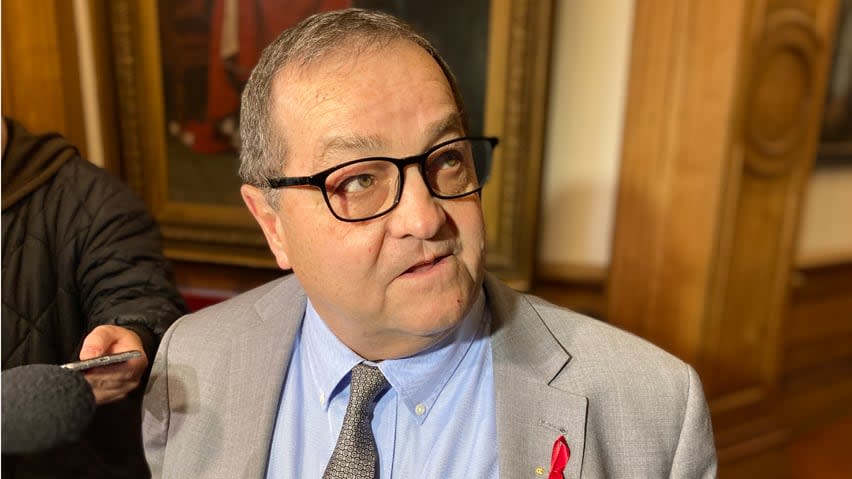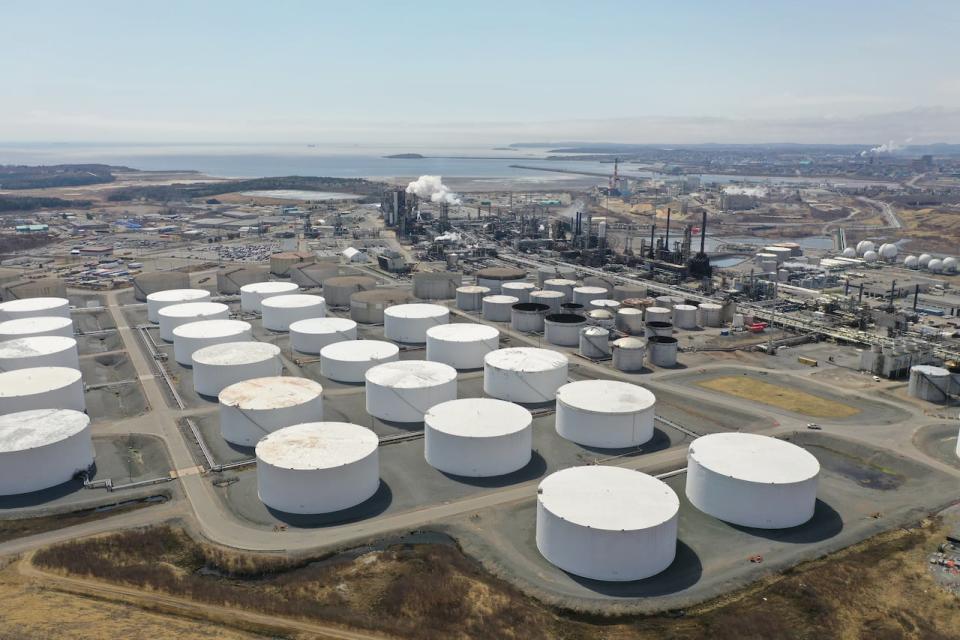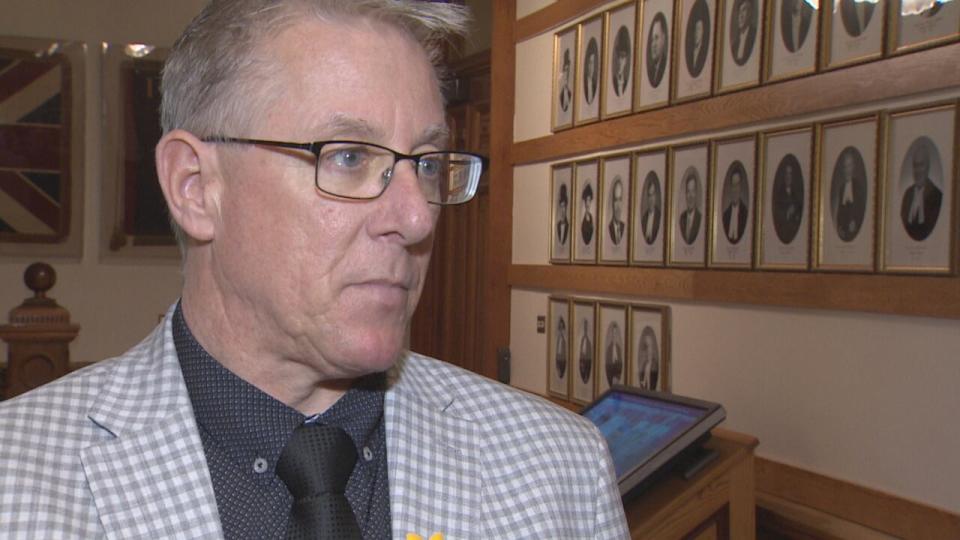N.B.'s industrial carbon tax revenue will return to emitters as subsidies

The New Brunswick government collected $18 million in industrial carbon tax revenue from the province's biggest emitters last year — money it plans to hand back to them this year in the form of subsidies.
Environment Minister Gary Crossman said the revenue will be used to provide incentives to big industry to help them lower their emissions, something the carbon price itself is supposed to do by making the emissions more expensive.
"The money collected by the output-based pricing system is being used to fund improvements by industry to reduce their greenhouse gas emissions," Crossman told a committee of the legislature reviewing his department's budget.
The minister said last year was the first year the government collected revenue via the output-based pricing system, a federally required, provincially run system that applies to New Brunswick's largest emitters.
Figures show the system brought in $12.8 million from the electricity sector and $6.4 million from industry.
That's far less than the $170 million consumers paid in provincial carbon tax in 2022-23, the final full year the New Brunswick consumer tax was in place before the federal system replaced it.
Under the provincial industrial pricing system, the government established an emissions standard for each emitter and requires them to reduce greenhouse gas levels by two per cent each year until 2030, when they must reach 82 per cent of the standard.

The Irving Oil Refinery in Saint John was the province's largest greenhouse gas emitter in 2021. (Shane Fowler/CBC)
Emitters that exceed those targets must pay the province for any emissions above the threshold, or buy tradable credits from other emitters who earn them by meeting the targets.
Critics say this in effect means they're not taxed on 82 per cent of their emissions.
"We're already shielding them from the full carbon tax," said Moe Qureshi, director of climate research and policy for the Conservation Council of New Brunswick.
Provincial officials have said a more stringent industrial carbon price would threaten New Brunswick companies with foreign competitors not subject to such taxes.
Crossman said emitters who come under the pricing system will apply "for funding for projects that reduce greenhouse gas emissions," and his department will evaluate them "on a merit basis."
Opposition MLAs criticized the handing back of the money.

Liberal environment critic Gilles LePage asked why the money was being given right back to corporations that should be funding their own emissions mitigation. (Ed Hunter/CBC)
"Why are we collecting it and then giving it back to large industries who have the means to do their own mitigation process [for emissions]?" asked Liberal environment critic Gilles LePage, who called the idea weird.
"It could have been distributed somewhere else, to mitigate some others who can't afford to do it."
Green MLA Kevin Arseneau called the plan "corporate welfare" and said the revenue should have funded emissions-reduction projects that benefit the province as a whole, such as public transit.
"What is the idea of sending this money back to industries that are racking up millions and millions and millions of profit every year?" he said.
Qureshi said the money could also fund electricity transmission upgrades so that renewable, non-emitting power could be more easily traded between provinces, improving its business case.
LePage said the province should disclose which large emitters paid for exceeding their targets.
"That should be public," LePage said. "Hopefully, somehow in some report, we'll see those names."
All 15 large emitters under the system are eligible to apply for funding whether they were required to pay or not.
About one-quarter of all climate-changing emissions in New Brunswick come from large industry. Twelve major private-sector facilities and three N.B. Power generation stations are covered by the system.
Irving Oil's refinery in Saint John was the largest greenhouse gas emitter in the province in 2021, the most recent year for which data is available.
It was followed by N.B. Power's coal-fired Belledune generation station, two other utility power plants in Saint John and the AV Group's mill in Nackawic.


